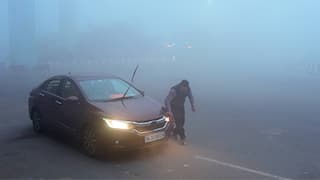Explorer
Tata-Mistry spat raises issues of corporate governance

The Cyrus Mistry saga has been done to death. Normally, fatigue would have set in among both the media and the public. As someone remarked, it does not even have any gossip value like, say, the sacking of the chairman of a liquor company. But the aftershocks of the sacking are still continuing.
Though the epicenter of this quake was Bombay House, the headquarters of Tata Sons, it has shaken entire corporate India and the tremors were also felt in the capital's corridors of power, especially the Finance and Corporate Affairs Ministry and, some suspect, even the PMO. Per public perception, the Tatas were considered the gold standard among Indian business conglomerates. Now some fundamental questions have been raised about corporate governance in India.
First, on a positive note, it establishes the supremacy of the board. But, at the same time it also makes it loud and clear that in the final analysis the promoters are the ones who call the shots.
Having conducted a silent board room coup the Tata PR machinery went on an overdrive. In a rather intriguing move, they had a slew of top gun lawyers defend their action on televison with a series of "exclusive" interviews rather than waiting their turn in court. This was probably triggered by rumours of Cyrus Mistry contemplating legal action (given that Mistry's father-in-law Iqbal Chagla, son of the famous MC Chagla, is a renowned and respected legal luminary) which also explains the rush to file caveats in courts. But, it was a rather curious way of addressing stakeholder concerns -- especially the stock market where the Tata stocks tanked.
In contrast, Mistry's reactions were both restrained and dignified. Other than what is being popularly called his "letter bomb" (it is not known for certain who leaked the contents) he has not made any public utterances. In fact, his office went out of its way to scotch rumours of potential legal action.
Returning to the root, none can deny the Board's prerogative to sack or appoint a Chairman. The rest is surround sound. Mistry certainly knows this and it would be surprising if he chooses to pursue a protracted legal tussle that will be a drain on resources and time. He wanted to have his side of the story to be known and has more than achieved that objective through his letter that mysteriously found its way into the public domain. Notwithstanding their self-righteous fulminations, it has clearly put the Tatas on the back foot with a lot of explaining to do and simultaneously put the onus on the Government, tax and regulatory authorities to investigate the charges.
The real battle, however, lies in the Board Room. It should not be forgotten that at the end of the day Mistry represented the interests of Shapoorji-Pallonji who hold 18.6 per cent of Tata Sons' shareholding. The Trusts, no matter how powerful they are, cannot steam roll over the interests of minority shareholders.
In many off-line conversations it has been remarked that one of the cardinal sins of Mistry was not keeping the Tata Trusts informed of his moves on divestments and acquisitions. A fundamental question that one has not heard being asked is about the legal propriety of sharing "price sensitive" information with majority shareholders. If the Trusts are expected to be kept informed, what about the public shareholders of the concerned companies who are directly affected by these decisions? This is where the 'Corporate Veil' has been sharply pierced. It remains to be seen what view Shapoorji-Pallonji takes on similar situations in the Tata Sons board going forward.
At one level it will test the corporate governance framework in the country, in which the role of independent directors will also come under a spotlight. The obligation of the board is not limited to just the promoters and shareholders, but also the larger universe of external stakeholders. It is for this unrepresented constituency the independent directors are expected to act as conscience keepers. But how far the average director is either inclined or equipped to discharge such responsibilities is a matter of debate.
Till the time of writing Mistry has not been dislodged from his position in the Tata flagship companies which were either affected by his decisions or might be impacted by the contingent liabilities that he has highlighted in his letter. Will the ordinary shareholders who had elected Mistry as the Chairman of their companies go along without a whimper if the respective Boards recommend his early separation? If the Tatas try to bulldoze their way through, it will be another travesty of corporate democracy.
It will be interesting to see if after all this corporate paper shredding, what kind of external talent the Tatas are able to attract to replace Mistry. Many are betting that they will have to settle for an "insider-outsider" like TCS's N Chandrasekaran. If there is even a grain of truth in Mistry's allegations, the task of his successor is already cut out. It will be a miracle if he/she is able to achieve the turnaround painlessly.
Meanwhile, the coming weeks will be a test of credibility between Cyrus Mistry and Ratan Tata. If one were to treat the initial stock market reaction as an 'Opinion Poll', the Tatas have reasons to worry.
Disclaimer: The opinions, beliefs and views expressed by the various authors and forum participants on this website are personal and do not reflect the opinions, beliefs and views of ABP News Network Pvt Ltd.
Follow Blog News on ABP Live for more latest stories and trending topics. Watch breaking news and top headlines online on ABP News LIVE TV
View More



























